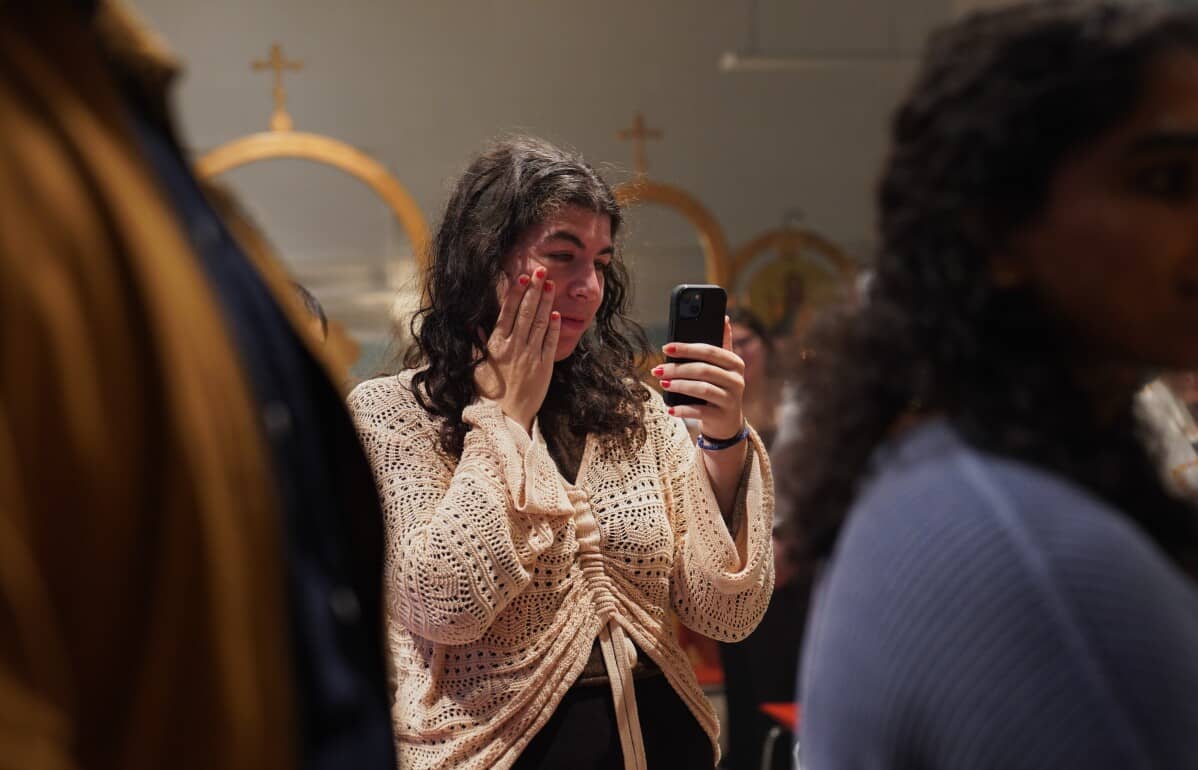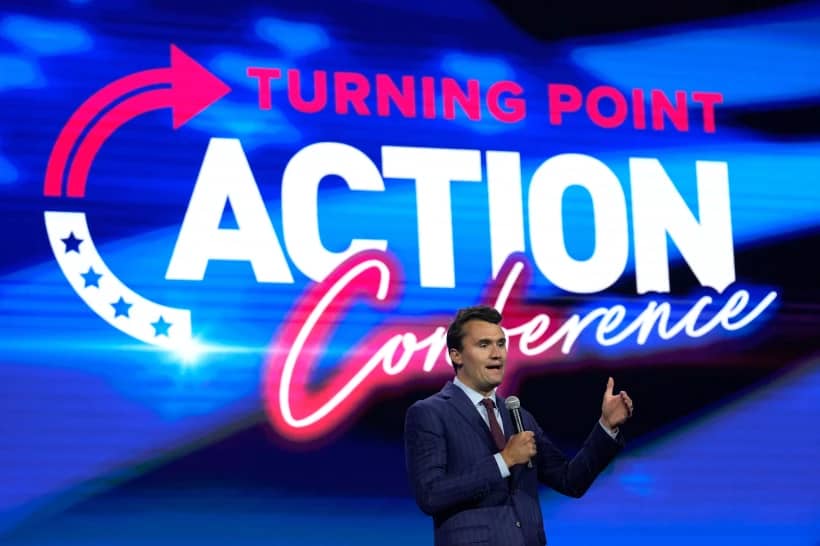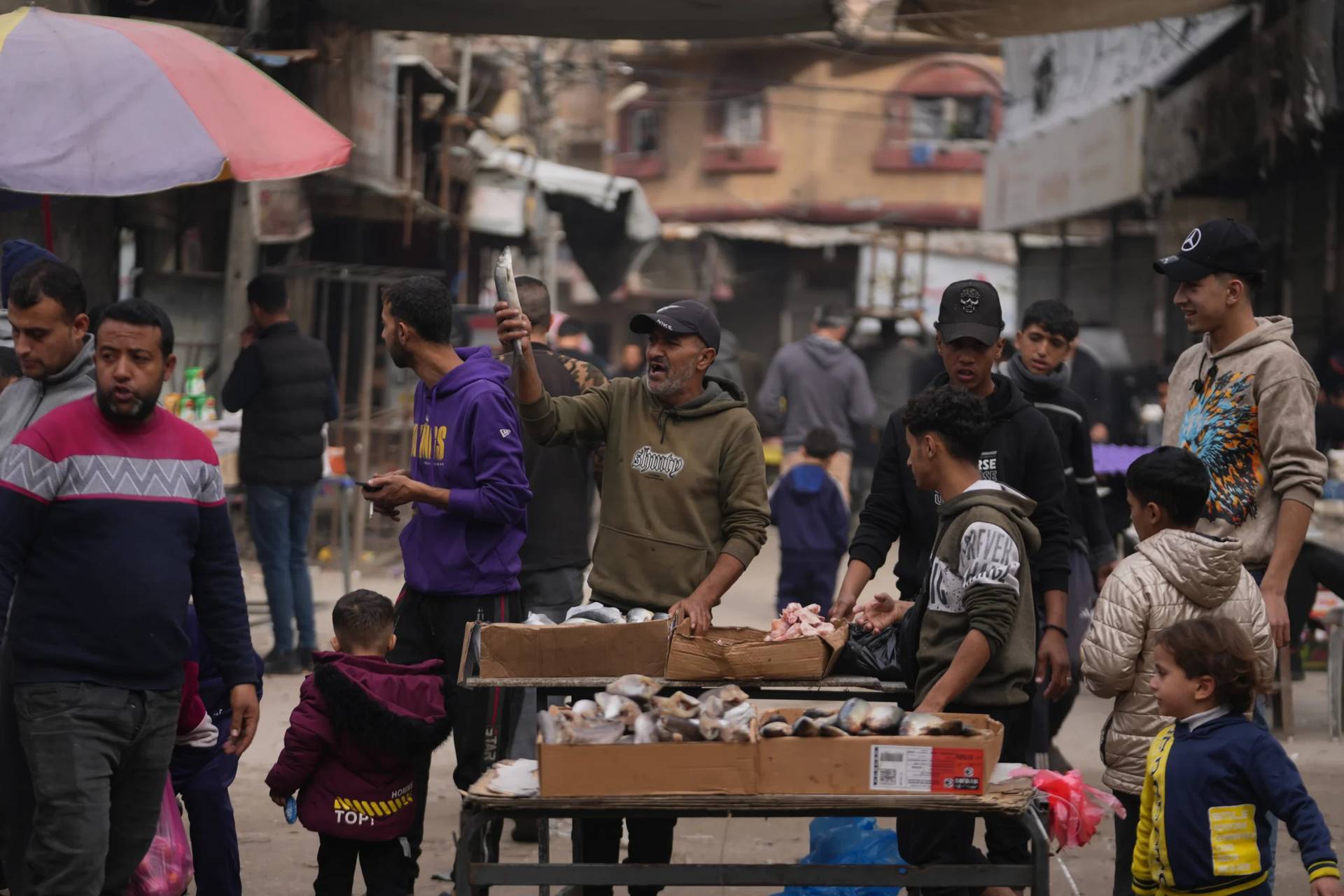DAVENPORT, Iowa — Some hail the Iowa caucuses as one of America’s greatest displays of democracy in action — although some Catholic priests in the state say that for them, it’s a form of disenfranchisement.
“I’m not a big fan of the caucus system,” says Father Thomas Hennen. “Personally, as a priest, I don’t feel much at liberty to participate in that process because it is so public.”
Hennen, a priest of the diocese of Davenport and chaplain at Saint Ambrose University, told Crux that one of the problems with the caucus process, as he sees it, is that many parishioners may have a hard time distinguishing his role as a public religious figure from his participation as a private citizen.
“Even if I go incognito without my collar, people are going to say ‘there’s Father Hennen. Who is he caucusing for? Maybe I should be caucusing for him,’ because they see me as a faith leader in the community. And I have an issue with that,” he said just over a week before Iowa’s Democratic caucuses take place on February 3, officially kicking off the race for the Democratic nomination for president.
Hennen is not alone in sharing that sentiment — with a number of priests from throughout the state telling Crux that because of the public nature of the caucus process, especially for the Democratic party, where participants have to publicly state who they are supporting — there are challenges with entering a caucus environment where your neighbors, some of whom might be your parishioners, too, are actively caucusing for a particular candidate and then having to publicly choose a side.
Father Mark Neal, pastor of Holy Trinity in Des Moines, says “there’s no perfect ‘Catholic’ candidate” and that his role in the process is to help parishioners “go with who you think is best — hopefully with a well-formed conscience.”
“As an ordained minister, you’re walking a fine line,” he told Crux, noting that he always encourages parishioners to get out and vote, but that he’s not one to participate in the caucus process.
Neal, who has been a priest for 14 years, and is now pastoring the very church he grew up in, says that he doesn’t remember ever being asked by a parishioner whom he plans to vote for — and that’s how he thinks things should be.
He describes his own parish as always having a “social justice bent,” meaning that politics is a popular topic of conversation — just not from the pulpit.
In June 2017, a major study from a former political scientist at Yale and a graduate student at Harvard, found that Catholic parishes that were made up of strongly Republican parishioners, were likely to have Republican-registered priests, and the same was true in churches with a predominantly liberal base of parishioners.
In other words, more often than not, the political views of priests tended to reflect that of the congregation.
The study, “Partisan Pastor: The Politics of 130,000 American Religious Leaders,” identified 180,000 clergy, of whom it was able to match about 130,000 to their voter registration records.
Researchers also found that, similar to that of parishioners, Catholic clergy were nearly evenly split in their party affiliations, with a large number of priests unaffiliated with a political party.
Father Christopher Weber, the parochial vicar at Our Lady of Lourdes in Davenport, says he thinks it’s best when priests keep their parishioners guessing as to whom they support at the ballot box.
Weber, who is 42 years old and was only ordained in 2017, says he participated in the caucuses as a layman, but that as a priest, things will be different.
Priests are “public people,” Weber told Crux, and says that he hopes that most Catholics can recognize that when priests are joining in the caucus process they are “speaking as a citizen rather than as a pastor.”
Given that the caucus process provides an opportunity for participants to talk about their preferred candidates and make a case for whom they should throw their support behind, Weber said it does provide an occasion for priests to “say I’m not here as a spiritual leader.”
“Whether they will hear it is another question,” he added.
In November, a new study from the Pew Research Center found that American Catholics were “less likely than all the other major Christian groups to have a lot of confidence in their clergy to give advice on almost all of the religious and personal topics asked about in the survey.”
RELATED: Poll finds American Catholics don’t look to clergy on politics
Among the topics participants were surveyed on were abortion, immigration, and climate change — all hot topics during the upcoming election cycle.
Even so, as the caucuses are fast approaching, Democratic candidates are ramping up their efforts to appeal to people of faith.
Last week, Senator Elizabeth Warren announced the formation of an interfaith advisory council to solicit the support of religious leaders across the country. Candidates, such as former Mayor Pete Buttigieg and former Vice President Joe Biden have been actively talking about faith since the very start of their campaigns.
Biden, a Catholic, has earned the backing of fellow Catholic, former Senator Chris Dodd, who told Crux that “Joe is a proud, practicing Catholic” who speaks about his faith “freely and comfortably” and that it “informs his position on the issues.”
“Faith is cornerstone of country,” said Dodd, adding that the “very soul of the nation” is at stake in this election. “By voting for Joe they will have a person of faith in the White House.”
Yet as the estimated 51 million Catholics in the U.S. head to the polls, be it in the caucuses or the general election, they remain nearly evenly split between the two major parties, and as the largest single religious group in the U.S., it’s a bloc that all candidates and both parties are vying for, even though many observers believe the “Catholic vote” to be nearly indistinguishable from the general population.
RELATED: In Iowa, Catholic Democrats undecided as caucuses near
While many Catholic Democrats in Iowa, like many of their non-Catholic neighbors remain undecided, Father Rudy Juarez, pastor of St. Patrick’s Church in Iowa City, says he recognizes that there’s a “big spectrum within the Church” and that he has to be pastor to people of both political parties and those of none.
Juarez told Crux that he’s currently registered as an independent but has participated in both the Democratic and Republican caucuses in the past.
“It’s up to the individual priest to decide how to identify,” he said, adding that he’s never spoken to parishioners about his own affiliation, though he has seen them at caucuses.
“That’s why sometimes I try to go incognito,” he added — yet given his Mexican heritage, where priests were unable to vote until 1980, he says it’s a privilege that he’s not going to take lightly.
Father Thomas Stratman, at age 94 and a registered Democrat, says that in the 69 years he’s been a priest, he only recalls participating in two caucuses — most recently in 2008 when then Senator Barack Obama won the Iowa Democratic caucuses, setting him on course to eventually win the presidency.
Stratman told Crux that he has good memories of the experience and that for many priests there’s a more practical concern when they’re weighing whether or not to participate: Their pastoral obligations around the parish.
“There are too many things going on most nights,” Stratman said, saying that it’s often just an issue of time and priests believing that they can be more effective elsewhere.
Yet since 1972, when Iowa became the state to hold the first presidential nominating contests, most Iowans — including the state’s Catholics — have become wed to their status of “first in the nation.”
“I also know it’s probably Iowa heresy to say this, but I am not wed to the ‘first in the nation’ status,” said Hennen of the process. He said he’d like to see the state switch to an open primary process.
Even so, Hennen believes, the ‘first in the nation’ is more than a moniker.
“It seems to be the only thing that the Democrats and the Republicans in the state can agree upon,” he added.
Follow Christopher White on Twitter: @cwwhite212
Crux is dedicated to smart, wired and independent reporting on the Vatican and worldwide Catholic Church. That kind of reporting doesn’t come cheap, and we need your support. You can help Crux by giving a small amount monthly, or with a onetime gift. Please remember, Crux is a for-profit organization, so contributions are not tax-deductible.












